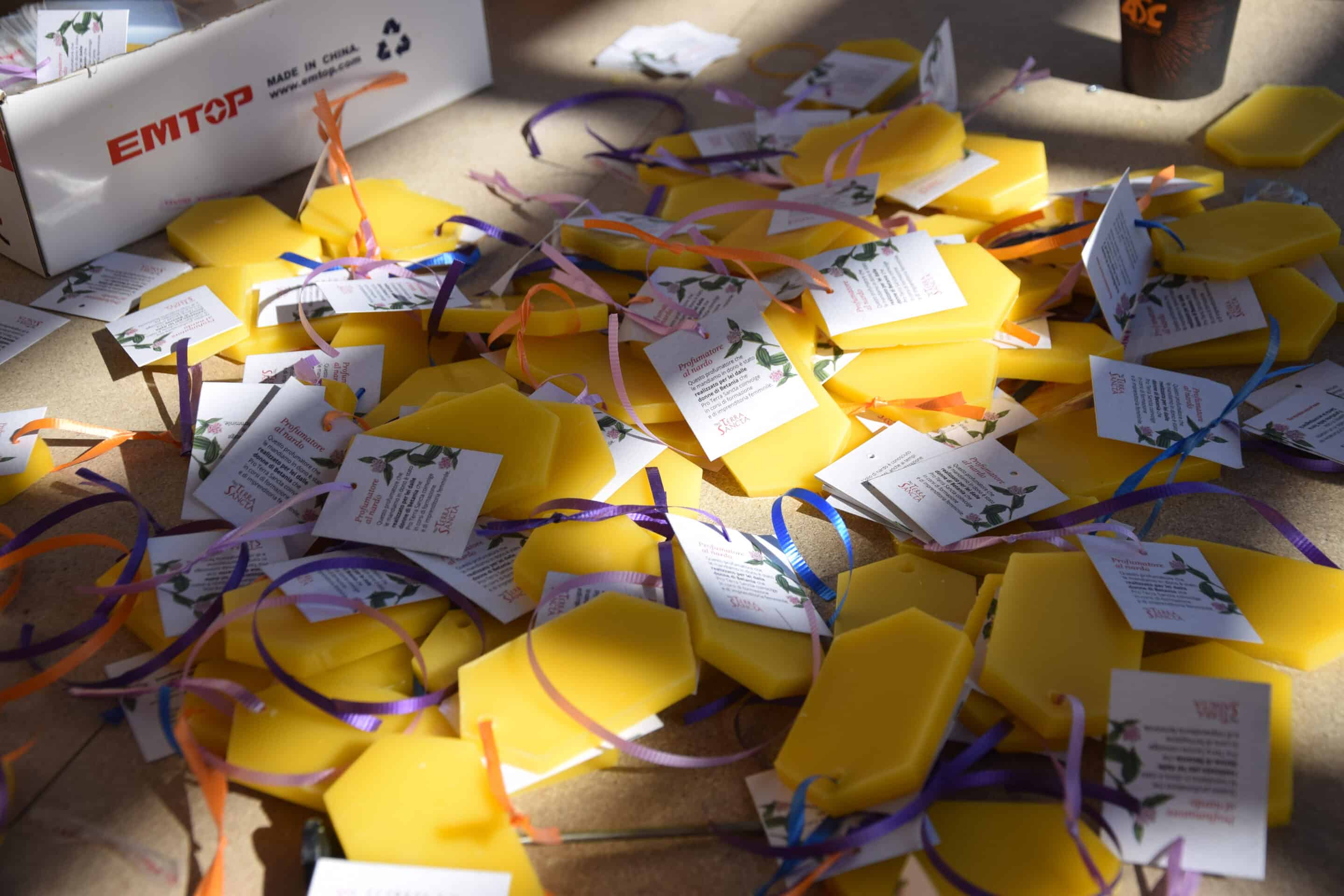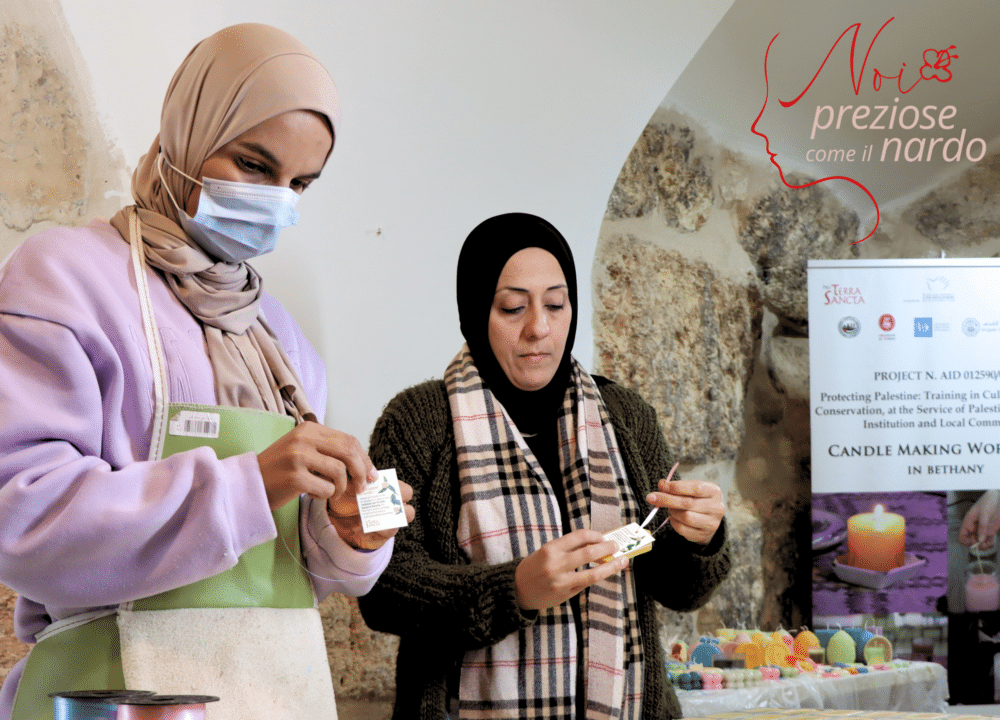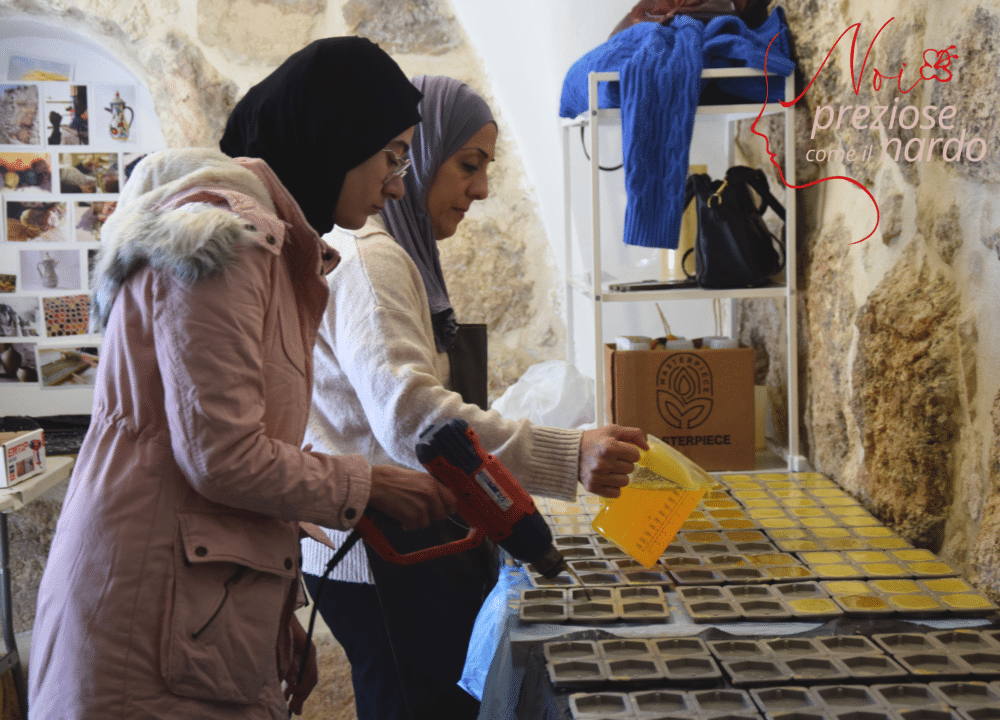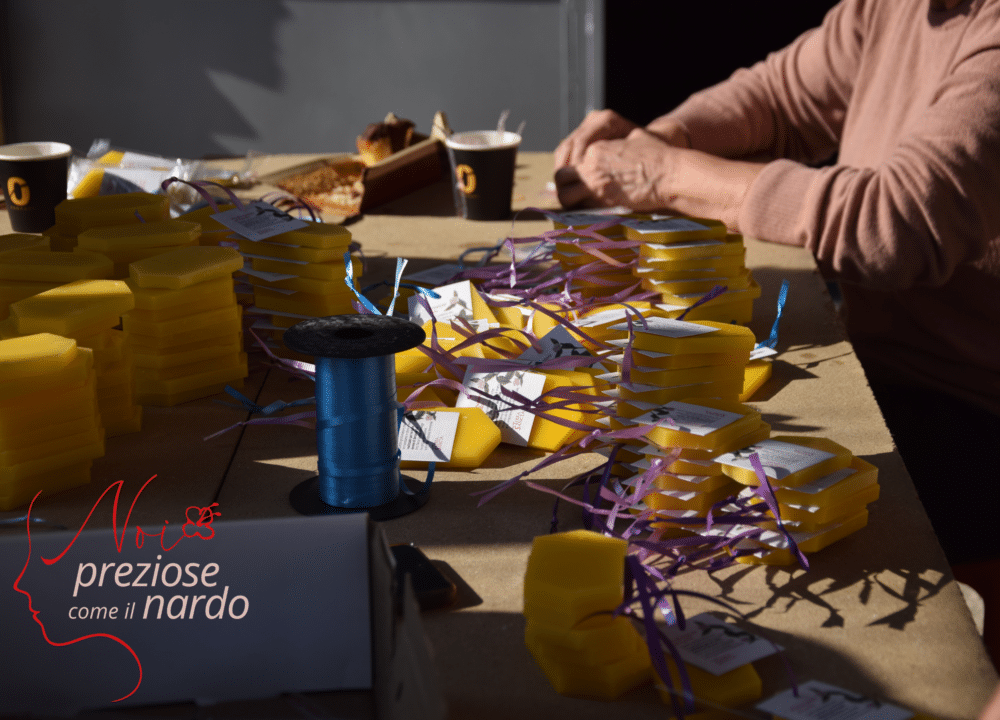
We, as precious as nard. A women’s entrepreneurship project in Bethany
Pro Terra Sancta’s campaign in support of the women of Bethany: help them build a future of independence and hope!

The context: one city
The village of Bethany, recounted in the Gospels as the village of friendship and hospitality, is today the scene of a terrible conflict. Since 2002, the city has been divided from neighboring Jerusalem by the Israeli separation wall, which has made it isolated and difficult to access: “The economic situation has worsened dramatically since the war,” explains Carla Benelli, head of conservation and development projects for the Pro Terra Sancta Association. In Bethany there are no more tourists and in general there is no more work; travel between Palestinian cities is severely restricted, while it is impossible to reach Jerusalem, which is less than a kilometer away, or Israel. This leads to many problems, economic and social.”
Since 2016, Pro Terra Sancta has been carrying out a number of archaeological and enhancement interventions in the area, involving the local community to create new job opportunities and help alleviate poverty.
Today, the war that continues to rage makes living conditions even harder: the absence of tourism has left many workers at home, who today struggle to support their families; The end of the ceasefire has plunged the area back into the nightmare of bombing.
The project: Us, as precious as nard
In this context of war and despair, a group of women is rewriting their destiny. The project “Noi, precious come il nardo“ was born here: from the desire to learn, to put one’s hand to one’s present to transform it and regain possession of it.
In collaboration with the Orthodox school of Bethany, we have launched three training courses to teach the girls of the school some techniques of artisanal production of scented candles. Between fifteen and thirty people participated in each course: several mothers were also added, eager to learn something new that would help keep local artistic traditions alive.
Three of these mothers then chose to continue, and started working in a small workshop there in Bethany. They produce scented candles with various essential oils, in particular with nard, but also with zatar and lavender: local products that smell of the East, tradition and home, imported but also – and increasingly – grown locally, to expand the possibility of employment to more and more people in the local community.
Using traditional fragrances, the workshop preserves and protects the culture of the place while giving work and livelihood to the women who participate in it: “The women have seen in this project an outlet in the world of work and an improvement in their lives,” comments Carla Benelli. “Our project makes it possible to ensure the costs of starting up and monitoring the first phase of the business. It would not have been possible for women to start this activity without our support.”

Bethany is a woman
Since biblical tradition, Bethany has been a feminine place: Martha and Mary, Lazarus’ sisters, lived there, and Jesus went there on several occasions, always finding a simple welcome but, for this reason, all the more precious. It was here, in their home, that Mary poured oil “with the scent of pure nard, very precious” on Jesus’ feet, giving him a much more precious good than they could afford.
This tradition has attracted many women over time, including important ones: among them was Queen Melisende, a powerful and legendary Crusader queen who came to Bethany to preserve her memory, to preserve the village of friendship and hospitality of two generous women.
To this original female matrix is added today the need for concrete help, and therefore the urgency of creating a community in which to live and sustain oneself. The community of Bethany is very closed, it is not easy for a woman to find a job that is lucrative enough to help her family and give her independence: helping the small artisans of Bethany therefore means continuing to weave this red thread of mutual support, carrying out the requests of a population that has been living for years in the uncertainty of the future.

Scent of rebirth
The nard, a fragrance that impregnates the ancient stone walls of the small workshop immersed in an enchanted garden, is a scent of biblical memory and linked, as already mentioned, to the Gospel episodes of Bethany.
An intense and well-known scent since ancient times, there are traces of it in Greek and Roman literature and also in the Divine Comedy: “that the phoenix dies and then is reborn, / when at the five hundredth year it approaches; / grass nor fodder in his life feeds, / but only of incense tears and love, / and nard and myrrh are the last swaddling clothes” (Inferno XXIV).
Today, like Dante’s phoenix, the community of Bethany is timidly beginning to be reborn, in the midst of the ashes of war and pain: as precious as the spikenard are the women of Bethany and throughout the Middle East, who have the strength to get back into the game for their families and for themselves.
For them, spikenard today has a new scent: the scent of rebirth.
Keep following us to discover their stories: the story of Alessia, an Italian-Palestinian girl who coordinates the project; the story of Saida, born in Jordan and moved to Bethany for love; the story of Maisa, a young mother who graduated in Health Administration in Abu Dis.